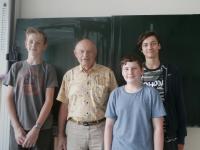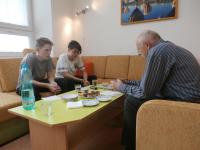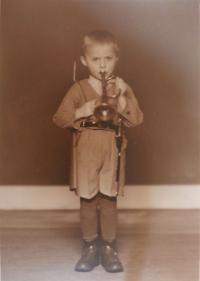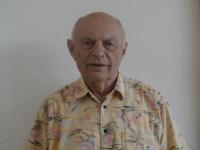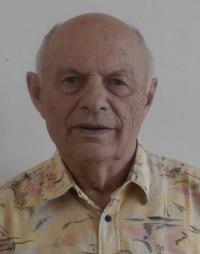Like putting a stone to your kid’s neck

Download image
Vladimir Novotny was born on January 28, 1933 in Liberec. Parents came from Velké Meziříčí in Vysočina. His father fought in the First World War on the Russian front. The family lived in Liberec until 1938. After Munich they lived separated, father in Turnov and mother with children in Vysočina. The witness graduated from the University of Chemical Technology in Pardubice. He worked at the State Glass Research Institute in Hradec Králové. In 1968 he joined the Club of Engaged Non-Partymen. He actively participated in political life. After 1989 he was a spokesman for the Civic Forum. He joined the Christian-Democratic Party and the Legionary Community of Czechoslovakia, which re-established its activities after 1989. He is currently its vice-president and is actively involved in commemorative events wearing his legionnaire uniform. He lives with her family in Hradec Králové.
